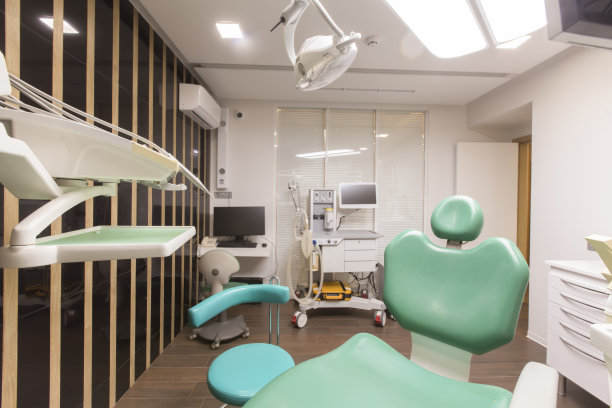Summary: Dental implantation is a complex procedure that demands meticulous planning and care to achieve positive outcomes. This article offers a comprehensive overview of essential precautions that can enhance both the success of the dental implant and the recovery process for patients. By focusing on factors such as pre-surgery preparation, intraoperative care, postoperative management, and lifestyle modifications, patients can significantly improve their chances of a successful implant experience. Understanding these elements is vital for anyone considering dental implants.
1. Pre-Surgery Preparation for Dental Implants

The success of dental implantation begins long before the actual procedure. Pre-surgery preparation is crucial in ensuring that a patient is in optimal health for surgery. Firstly, a thorough dental evaluation is essential to determine the condition of gums, the quality of jawbone, and the overall oral health. Any existing oral infections or dental issues should be addressed prior to surgery to prevent complications.
Secondly, medical history plays a vital role in pre-surgical preparation. Patients must communicate any allergies, medications, or chronic health conditions to their dental professional. Certain medications can affect healing or interact negatively with anesthesia, making this communication integral for safely proceeding with the surgery.
Lastly, smoking cessation is a critical aspect of preparation. Smoking can impair blood circulation and hinder the healing process post-surgery. Patients are typically advised to avoid nicotine for at least a week before the procedure and continue post-operatively for the best outcomes.
2. Intraoperative Best Practices for Success
During the dental implant procedure, a variety of best practices must be followed to ensure a successful outcome. Sterility is paramount; all instruments must be sterile to avoid the risk of infection. The dental team should follow strict hygiene protocols, using gloves, masks, and appropriate surgical attire.
Moreover, effective anesthesia administration is critical in providing comfort to the patient and minimizing anxiety during the procedure. A well-managed anesthesia plan can make a significant difference in the patient’s experience and provide a smoother process overall.
Furthermore, precise surgical techniques are required for optimal placement of the titanium implant. These techniques include proper drilling, correct angling, and torque control, which ultimately affect how well the implant integrates with the jawbone. Each step of the surgery should be performed with attention to detail to minimize the risk of complications.
3. Postoperative Care and Management
After the surgery, proper postoperative care is crucial to promote healing and reduce the risk of infection. Patients should be given clear instructions regarding care for the surgical site, including how to clean the area gently without disturbing the implant.
Additionally, pain management is an important aspect, with prescribed medications often necessary to alleviate discomfort. Patients should adhere to their medication schedule to ensure they are as comfortable as possible during the initial recovery phase. If any unusual pain or swelling occurs, patients should contact their dental provider immediately.
Finally, follow-up appointments are essential for monitoring the healing process and ensuring successful integration of the implant. Regular check-ups allow the dental professional to identify any issues early and address them before they develop into more serious complications.
4. Lifestyle Modifications to Enhance Recovery
Lifestyle modifications play a significant role in the recovery process post-implantation. A balanced diet rich in vitamins and minerals supports healing. Patients should focus on consuming foods that are high in protein, calcium, and vitamin C, all of which assist tissue repair and overall recovery.
Hydration is another key factor. Drinking enough water helps in the healing process by maintaining optimal bodily functions and flushing out toxins that could interfere with recovery. Patients should aim for sufficient hydration while avoiding sugary or acidic beverages that might irritate the surgical site.
Additionally, incorporating gentle physical activity, like walking, can promote blood circulation and boost overall health. However, patients should avoid strenuous activities and heavy lifting during the healing period to reduce the risk of complications.
Summary:
Adopting essential precautions at each stage of dental implantation significantly enhances the likelihood of a successful outcome. From thorough pre-surgery preparation to attentive postoperative management and positive lifestyle changes, all elements are interconnected in their contribution to recovery. Patients must be proactive, informed, and communicative with their dental professionals to achieve the best results.
This article is compiled by Vickong Dental and the content is for reference only.
Vickong Dental
Vickong Dental is a large medical group established in Hong Kong in 2008 by professors from well-known medical universities in Guangdong and Hong Kong, as well as medical doctors from key national '985' universities (including Master's supervisors and senior professors). The chain of branches brings together expert dentists with PhDs and Master's degrees from Hong Kong and Mainland China, committed to providing high-quality dental treatment.
"Vickong Dental Practices the University Motto of 'Healing and Serving Society,' with a Stable Operation for Sixteen Years. It Has Been honored with Hong Kong Enterprise Leaders's Choice,' and is a Global Trusted Implant Center for the Nobel Implant System. Recommended by Hong Kong Metro Broadcast and Guangdong Television, it Serves Customers from Over Thirty Countries and Regions, Gaining the Trust and Favor of Citizens from the Guangdong-Hong Kong-Macau Greater Bay Area and Surrounding Cities.

Thousands of customers' unanimous praise
The most recognized and highly recommended dental service by customers in the Guangdong-Hong Kong-Macau Greater Bay Area
We Ensure You Receive Detailed Care and Attention Here
Hong Kong standards, Shenzhen prices, Your Trusted English-speaking dentists

Vickong Dental Medical-Grade Instrument Disinfection Process
Vickong Dental Medical-Grade Instrument Disinfection Process

Vickong Dental Chain: A Warm and Comfortable Environment for Treatment






Appointment Hours

Q&A
Why choose Vickong Dental?
Vickong Dental practices the university motto 「Medicine to Benefit Society」, with each branch bringing together highly qualified dentists with doctoral and master’s degrees from Hong Kong and the Mainland, and has maintained seventeen years of steady operation。Recipient of 「2024 Hong Kong Enterprise Leaders Brand」, 「2025 Hong Kong Enterprise Leaders Brand」, a Nobel Biocare Global Trusted Implant Center, and a brand recommended by Metro Radio Hong Kong and Guangdong TV。
To date, we have served customers from more than thirty countries and regions,earning exceptionally high word-of-mouth recognition and trusted recommendations from residents across the Guangdong-Hong Kong-Macao Greater Bay Area and surrounding cities
We have eight major branches in Zhuhai、Shenzhen,and a consultation and service assurance center in Hong Kong,so you can book a free consultation at any time for any questions,which is very reassuring.
If I do not accept the quotation after the CT scan, will I be charged??
No! As long as the actual treatment has not started, you will not be charged any fees.
Will there be any additional charges during the treatment process?
No, there won’t be any additional charges. Before treatment begins, we will clearly explain the treatment plan and its corresponding fees. Only after the patient agrees and signs the consent form will we proceed with the dental service.
Can I pay in Hong Kong dollars?
Yes. Vickong Dental accepts payment in Hong Kong dollars. The amount will be converted based on the exchange rate of the day, and the applicable rate will be clearly communicated to you in advance.
Can I reschedule my appointment at any time?
Yes. Please contact us via **WeChat** or **WhatsApp** as early as possible, providing your original appointment time and details, along with your preferred new date and time slot for rescheduling.













